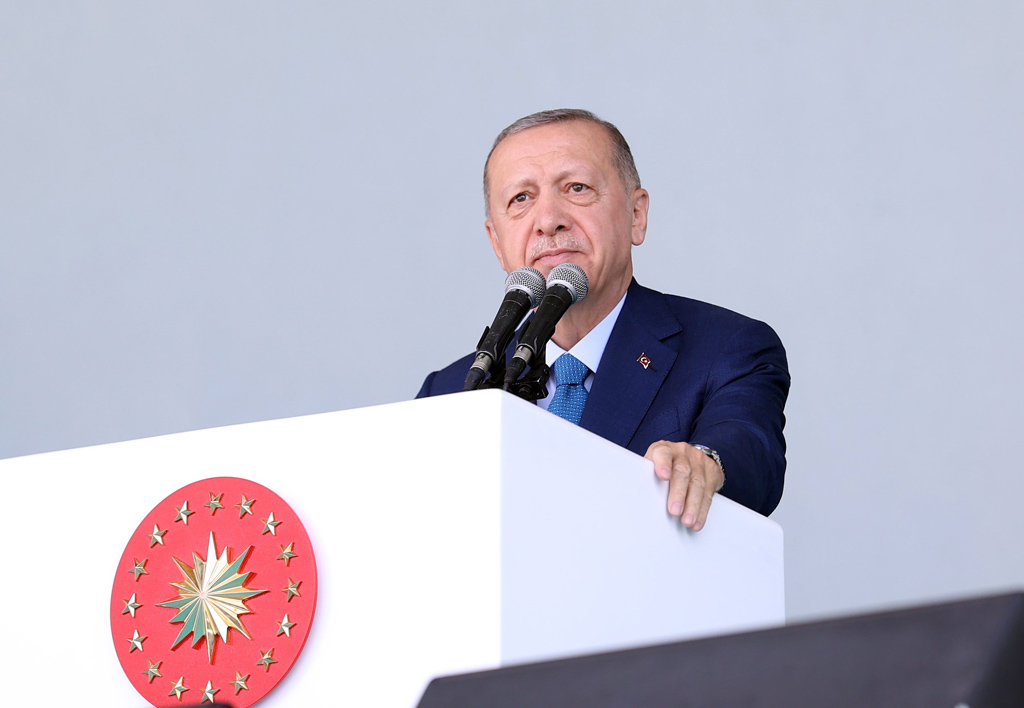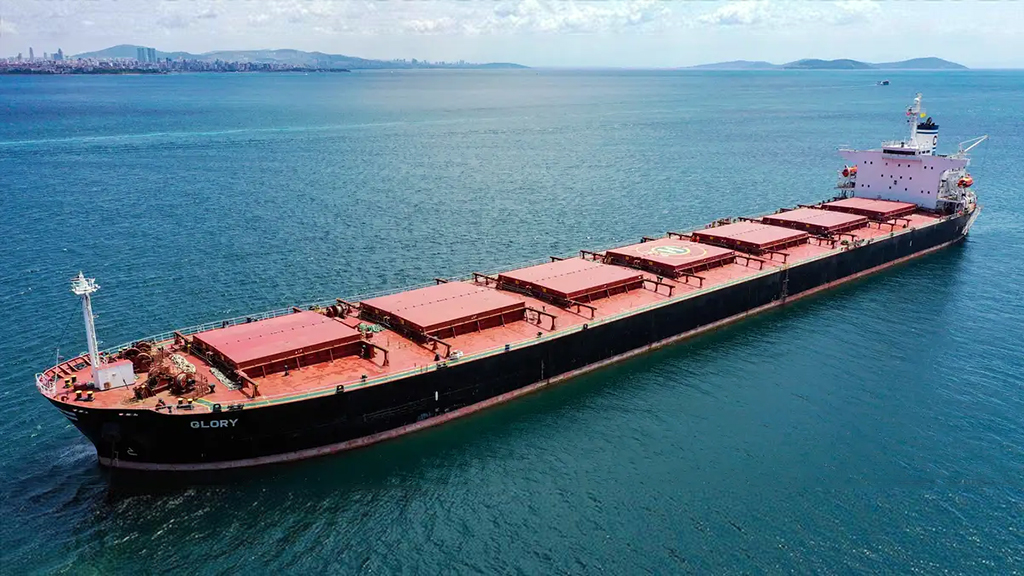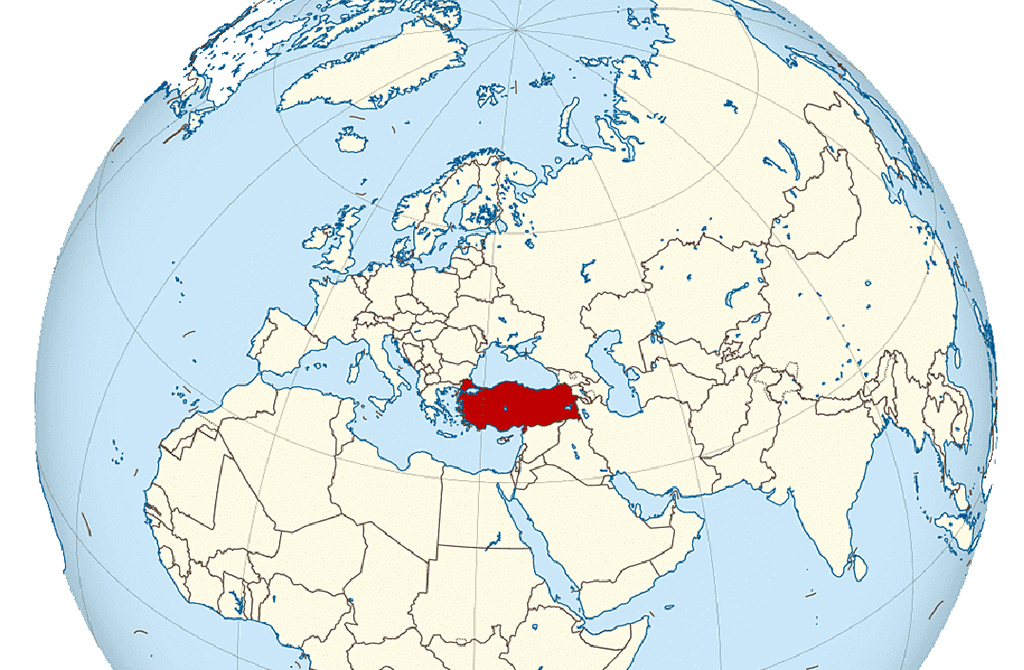Delivering speeches in the provinces of Izmir and Van and the ruling Justice and Development Party's (AK Party) parliamentary caucus, President Recep Tayyip Erdoğan launched a highly effective, clear-minded campaign regarding next year’s election, the presidential candidates and the opposition.
Stating that “the countdown to the 2023 election has begun,” Erdoğan signaled that his campaign will continue with a fresh discourse on the ground. In addition to announcing his own candidacy, he mounted pressure on the main opposition Republican People’s Party (CHP) Chairperson Kemal Kılıçdaroğlu – “Are you running or not?” – and the opposition’s "table for six" – “Where is your candidate?”
We know that Erdoğan has only more recently brought up the question of the opposition's presidential candidate. By contrast, the opposition has spent the last two years talking (and fueling a debate) about early elections and potential presidential candidates. One could even argue that this approach contributed to the opposition’s ability to set the agenda.
In this regard, Erdoğan directly targeting Kılıçdaroğlu and the opposition bloc is a new phenomenon. If one were to ask the CHP supporters, they would argue that “the People’s Alliance fell into a trap and announced its candidate exactly when the main opposition party wanted” and that “the CHP will pick its candidate whenever it wants.”
Erdoğan, however, is already questioning the frontrunner, Kılıçdaroğlu, and the potential candidate, whom the opposition bloc keeps guarded in an attempt to shelter them from criticism: “What kind of candidate would lose credibility as soon as their name comes up and the people get to know them? What kind of candidate would lose their reputation and support over time?”
'Announce the candidate'
The opposition maintains that responding to Erdoğan’s challenge to “announce their candidate” would amount to falling into the president’s trap. Yet his questioning of that unknown candidate will put pressure on the "table for six" whether they pick a candidate or not. If Kılıçdaroğlu ends up being the candidate of choice, he will have been weakened already. Meanwhile, the CHP’s mayors face mounting criticism due to competition among the opposition parties. Istanbul’s mayor, Ekrem Imamoğlu, allowed his greed to tarnish his reputation among CHP supporters. Meanwhile, it remains extremely difficult for Mansur Yavaş, the mayor of Ankara, to position himself as a candidate to address the country’s pressing problems. Finally, if the opposition picks someone else, that person will have limited time to introduce themselves to the electorate. Furthermore, any candidate (except Kılıçdaroğlu) will be labeled as “ineffective,” “unable to govern” and a “puppet” due to the opposition bloc’s guardianship.
A long campaign has officially kicked off. The 2023 election differs from the municipal elections in the sense that the opposition cannot wait until the eleventh hour to pick its candidate. Is it possible that the opposition is falling into Erdoğan’s trap by failing to pick its candidate now? It is indeed curious that the opposition still cannot appreciate Erdoğan’s ability to spoil his opponents' plans and set the table himself.
The 2023 election will be an election of “questions, counter-questions and responses.” We will witness a rhetorical battle over Turkey’s “national interests,” “national identity” and “the best candidate to take the country into its next century.”
The questions CHP faces
The 10 questions Erdoğan asked Kılıçdaroğlu regarding foreign policy, national security, defense and their implications for domestic politics point to the shape the upcoming election will take. There are some fundamental questions that the CHP and the "table for six," who are unable to agree on a common policy regarding the country’s most pressing issues, include the following:
- Libya is strategically important for defending our maritime jurisdiction in the Eastern Mediterranean. Do the five opposition parties agree with the CHP, which misses no opportunity to question why Turkey has a presence in Libya?
- The militarization of the Aegean islands is a violation of international law. Some members of the CHP have made public statements that endorse the Greek position. Where do the CHP and "table for six" stand on that issue?
- With Turkish support, Azerbaijan regained control over Karabakh. During that period, however, CHP heavyweight Ünal Çeviköz lent support to Armenia’s lies by claiming that Turkey was “sending jihadists” to Azerbaijan. What does the "table for six" think about that?
- Turkey exercised its veto right in NATO to block the admission of Sweden and Finland, which subject Turkey to an arms embargo and serve as a safe haven for terrorist organizations. Yet the CHP leadership has been making statements that support the Swedish position. Do the CHP and the "table for six" have any opinion on that matter?
- Turkey made extraordinary progress in many areas of defense, including the production of armed drones. What do the CHP and the "table for six" think about the success of our defense industry?
- The United States has not ceased collaborating with the YPG, the PKK terrorist organization’s Syrian component, in northern Syria. The CHP made its position clear by voting against cross-border military operations in Parliament. What does the "table for six" think about that? More importantly, will the CHP work with the YPG if it ever comes to power – since it questions Turkey’s presence in northern Syria?
- Is Kılıçdaroğlu, who pledged to reinstate public servants who were dismissed by decree, unaware of the threat of the Gülenist Terror Group (FETÖ) whose members engage in hostile activities against Turkey abroad?
[Daily Sabah, June 20, 2022]









